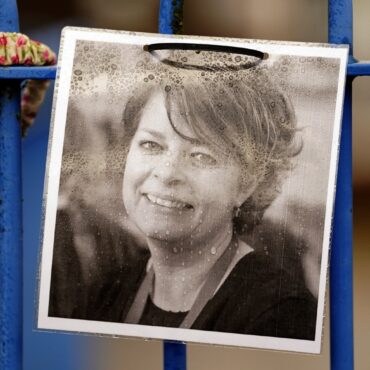-
 play_arrow
play_arrow
DukeBox Radio The Voice Of The Wellington Academy
-
 play_arrow
play_arrow
Jetstream Episode #15 - Festival of Education Celebration
Allowing children in hospital to play could reduce mental health problems


Investing more in play resources for children in hospital could prevent them from developing “serious, long-term mental health problems”, a charity has claimed.
Starlight said giving children the opportunity to play could reduce the risk of trauma.
The report, Reducing Trauma For Children In Healthcare, also highlights “huge gaps in play resources” in the UK and called for investment in play professionals and resources.
According to analysis by the charity, there are 1,156 people in a variety of roles in the UK’s play workforce, but only 571 are registered health play specialists (HPS).
This is compared to 1.7 million UK hospital admissions a year.
Cathy Gilman, chief executive of Starlight, said: “Many children in hospital have to endure trauma, fear and pain because of the treatment they undergo.
“Despite advances in modern healthcare, there remains a paradox that children can develop serious, long-term mental health problems as an unintended consequence of their care.”
The NHS describes a HPS as a someone who uses “play as a therapeutic tool to help children understand their illness and treatment” working alongside other health professionals “to prepare children for treatment and engage them during difficult procedures”.
Starlight claims that half of HPS work part-time, meaning the ratio equates to one full-time HPS per 3,986 child hospital admissions each year.
The report also found 71% of NHS trusts and health boards across the UK do not have a designated play budget.
Ms Gilman added: “Recognising the importance of and investing in play professionals and resources need to be a priority, yet our report has highlighted woeful gaps in play services across the country.
“Above all else, we must listen to what children are telling us.
“When we ask children about being in hospital the overwhelming response is that hospital is scary and play makes it better.”
Penelope Hart-Spencer, chairwoman of The National Association of Health Play Specialists, said: “We understand implicitly the positive impact a playful, well supported experience has on the emotional wellbeing of children in healthcare.
“It remains a great concern to the profession that there are vast discrepancies in play services for children throughout the UK, which is attributing to trauma.
“Health play specialists prioritise children’s mental health within our health services.”
NHS England and the Department of Health and Social Care has been approached for comment.
Published: by Radio NewsHub
Written by: admin




